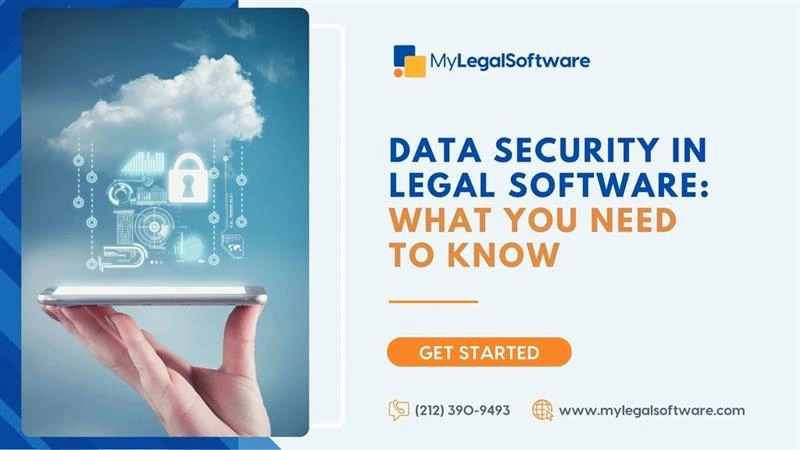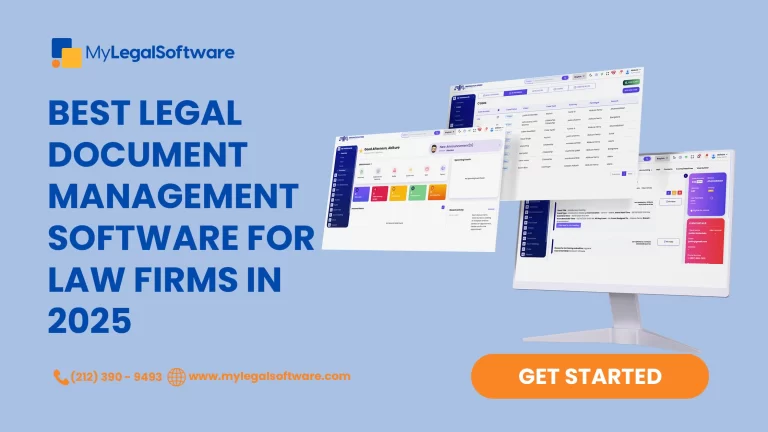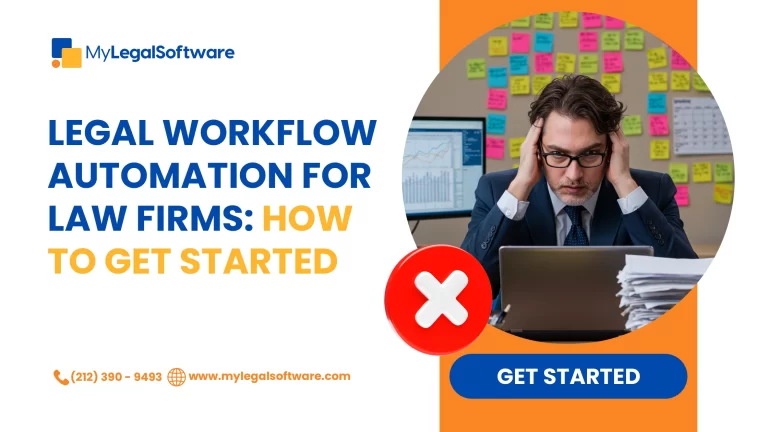When we hear about Data Security in Legal Software, we immediately think about keeping our passwords and financial details safe. But in the legal world, data security takes on a whole new level of importance. Law firms handle loads of highly sensitive information—from personal client details to confidential case files—and securing this data doesn’t just translate to being cautious. It’s also about maintaining trust, meeting strict legal requirements, and avoiding the risks that come with data breaches.
In this post, we’ll break down everything you need to know about data security in legal software: from why it matters, to the top features to look for, to best practices for keeping client data safe.
Why Legal Software Needs Top-Notch Data Security
Think about it—law firms are gold mines of sensitive data. From clients’ private information to billing details and case histories, law firms hold it all. And with that comes both an ethical obligation and a legal one to protect this data. Beyond that, compliance with regulations like GDPR or the California Consumer Privacy Act (CCPA) is non-negotiable. Falling short can lead to serious consequences, including hefty fines and damage to the firm’s reputation.
So, how can legal software help protect all of this sensitive data? With built-in security features tailored to the legal industry, the right software can make securing data a natural part of how your firm operates.
Key Security Features for Data Security in Legal Software
All legal software isn’t created equally. If you’re choosing case management software for your firm, therefore, it’s important to know which security features matter most. Here are some must-haves:
Encryption for Data in Transit and at Rest
- Encryption protects data both when it’s sitting on a server (“at rest”) and when it’s being sent somewhere (like in an email or upload). Even if someone tries to access the data without permission, encryption ensures it’ll be unreadable.
Role-Based Access Control (RBAC)
- Not everyone in a law firm needs access to everything. With RBAC, different levels of access can be set up, so people only see what they need. For instance, paralegals might access case details but not client billing information, reducing the risk of data leaks from within.
Two-Factor Authentication (2FA)
- Gone are the days when a simple password was enough. 2FA adds an extra layer of protection by requiring users to verify their identity with something they know (like a password) and something they have (like a code on their phone). It’s a simple step with a big impact on security.
Automatic Data Backups
- In case of a cyberattack or technical problem, data backups are lifesavers. Regular, automated backups ensure you always have a secure copy of your files, which can be a crucial part of recovering from any issues without losing valuable data.
Audit Logs and Monitoring
- Legal software with audit logs keeps track of who accessed what, when, and what changes were made. This is essential not only for tracking suspicious activity but also for showing compliance if you’re ever asked to prove your security practices.
Compliance with Data Protection Regulations
- Look for software that’s compliant with industry regulations like GDPR, HIPAA, or CCPA. This compliance shows that the software is designed to protect data according to legal standards, making it easier for your firm to stay on the right side of the law.
How Legal Software Helps with Compliance
Compliance can be a maze for law firms to navigate, especially when data protection laws vary across jurisdictions. Good legal software helps by building compliance features directly into the system, simplifying things like data storage and handling.
For instance, My Legal Software is designed to comply with GDPR, HIPAA, and CCPA requirements, so you don’t have to worry about whether your data practices meet regulatory standards. Using software built for the legal industry lets you focus on helping clients, with confidence that your data handling is legally sound.
Cybersecurity Best Practices for Law Firms
Beyond choosing secure software, there are general cybersecurity measures every law firm should take to keep data secure:
Regular Software Updates and Patch Management
- Cyber threats are constantly evolving. Regularly updating your legal software and operating systems helps to patch vulnerabilities and keep security strong. Software providers like My Legal Software offer regular updates, so staying secure is as simple as accepting the updates.
Employee Training on Data Security
- Security isn’t just about software; it’s about people, too. Training everyone at your firm to recognize and avoid common threats, like phishing, helps prevent accidental data leaks. Regular education on best practices reduces the chances of human error.
Data Retention Policies
- Not all data needs to be stored forever. A clear data retention policy helps your firm decide how long client data should be kept and when it can be safely deleted, reducing the amount of sensitive data at risk if there’s a breach.
Using Secure Communication Channels
- When you need to share sensitive information, don’t rely on regular email. Using secure portals or encrypted email services that integrate with your case management software can keep communication safe.
Data Security in Legal Software for Risk Management
Risk management is part of running any business, and in law, it includes keeping data safe. Failing to secure data puts your firm at risk of financial penalties, lost client trust, and even legal action. Legal software helps with risk management in a few key ways:
- Automating Data Protection – With features like encryption and 2FA, legal software automates much of the protection process, reducing the chances of accidental exposure.
- Supporting Incident Response – Audit logs and monitoring tools help your firm quickly respond to any security issues and identify possible breaches.
- Easing Compliance – Many legal software options come with built-in reporting features that simplify audits and show your firm’s adherence to security best practices.
By investing in secure, compliant legal software, you’re not only reducing risks but also showing clients that you take their privacy seriously—a big trust-builder.
Choosing the Right Legal Software | Data Security in Legal Software
When looking for legal software, make sure data security is high on your priority list. Platforms like My Legal Software are designed with law firms’ unique needs in mind, with features for secure document handling, client communication, and compliance support.
Data security isn’t just about protecting data. It’s about protecting your reputation and maintaining your clients’ trust.
Conclusion – Data Security in Legal Software
Data security in legal software is not an optional add-on; it’s a necessity. With the right secure software and smart cybersecurity practices, your firm can safeguard sensitive data, simplify compliance, and protect against cyber threats. My Legal Software offers everything you need to keep client data secure and manage cases with confidence.
Ready to boost your firm’s data security? Visit My Legal Software to see how our platform can help safeguard your data, keep you compliant, and support your firm’s success.
Want to learn some useful tips about Future-Proofing Your Legal Practice with Technology? Go here.
Frequently Asked Questions – Data Security in Legal Software
- Why is data security so important in legal software?
Legal software manages sensitive information—client details, case notes, billing—that must be protected for legal compliance and client trust. Secure software helps keep this data safe from breaches and unauthorized access.
- How does encryption protect legal data?
Encryption makes data unreadable to anyone without the correct decryption key. This means that even if data is intercepted, it can’t be accessed without authorization.
- What should I look for in secure legal software?
Look for encryption, two-factor authentication, role-based access control, and compliance with data protection laws. These features protect sensitive information and make data security management easier for your firm.








